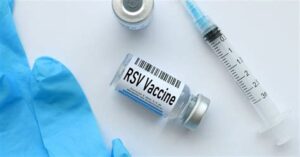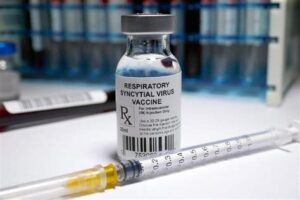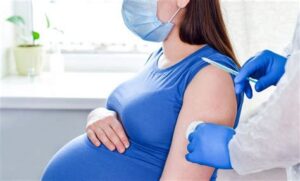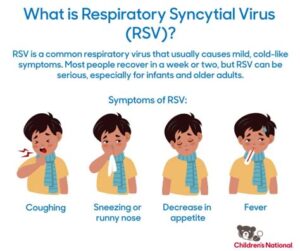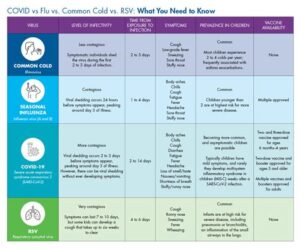Explore RSV infection risks in transplant patients, the importance and development of the RSV vaccine, and vaccination recommendations for effective protection.As the medical landscape continues to evolve, the importance of vaccination in vulnerable populations cannot be overstated. Among these groups, transplant patients face unique challenges, particularly regarding respiratory syncytial virus (RSV) infections. These infections can lead to severe complications and even hospitalization, making preventive strategies crucial. This blog post delves into the significance of RSV vaccination specifically for transplant recipients, highlighting the unique risks they face and the current advancements in vaccine development tailored for their needs. We will explore the effectiveness of the RSV vaccine in these patients and provide recommendations for healthcare providers and caregivers on ensuring this protective measure is followed. Join us as we uncover how the RSV vaccine can help safeguard the health of transplant patients and improve their quality of life.
RSV infection in transplant patients
Respiratory Syncytial Virus (RSV) is a significant concern for transplant patients due to their compromised immune systems. RSV infections can lead to severe respiratory illness and have been associated with increased morbidity and mortality in this vulnerable population. The risk of RSV infection is particularly pronounced during the winter months, when outbreaks are more frequent.
In transplant recipients, particularly those who have undergone lung or heart transplants, the consequences of RSV can be dire. Recipients of these organs are at a higher risk of developing severe complications, such as pneumonia or bronchiolitis, which can result in prolonged hospital stays, invasive respiratory support, or even graft failure.
According to recent studies, the rate of RSV infection among transplant patients can range from 5% to 22%, with significant variations based on the type of transplant and timing post-transplant. Preventative measures, including vaccination and strict hygiene protocol
Importance of RSV vaccine
The Respiratory Syncytial Virus (RSV) is a significant cause of respiratory illness, particularly in vulnerable populations such as transplant patients. These individuals often have compromised immune systems due to their medical conditions and the immunosuppressive therapies they undergo to prevent organ rejection. As a result, the importance of the RSV vaccine for this demographic becomes critically evident.
The RSV vaccine serves as a preventive measure, significantly reducing the risk of severe infections in those most at risk. Protecting transplant patients from RSV is essential, as infections can lead to prolonged hospital stays, increased healthcare costs, and poor overall outcomes. The vaccine not only helps in safeguarding individual health but also plays a crucial role in protecting healthcare systems by minimizing outbreak risks in medical facilities.
Research continues to emphasize the necessity of vaccinating transplant recipients before the RSV season. Vaccination programs specifically targeting this high-risk group can lead to better health outcomes and enhance the quality of life for these patients. Ultimately, the importance of the RSV vaccine in transplant patients cannot be overstated, as it is a critical component of their health management strategy.
Development of RSV vaccine for transplants
Respiratory Syncytial Virus (RSV) poses a significant threat to transplant patients due to their compromised immune systems. The development of an RSV vaccine tailored specifically for this vulnerable population has become a vital area of research and clinical trials.
Traditional vaccines may not be effective in immunocompromised individuals. Therefore, researchers are focusing on designing a vaccine that not only stimulates a protective immune response but also takes into account the unique challenges faced by transplant patients. Recent studies have explored various vaccine platforms, including inactivated viruses and recombinant protein platforms, demonstrating promising preliminary results.
The complexity of the RSV virus, combined with the need for safety and efficacy in a transplant setting, requires innovative approaches. A collaborative effort among clinicians, virologists, and immunologists is essential to ensure the development of a successful RSV vaccine that meets the needs of transplant recipients. Current clinical trials are assessing the optimal dosing schedules and potential adjuvants to enhance immune responses without exacerbating the patients’ underlying conditions.
In addition to vaccine safety, it is crucial to monitor long-term immunogenicity and effectiveness in transplant recipients. The road to developing a suitable RSV vaccine is filled with challenges, but the potential benefits for transplant patients are immense.
Effectiveness of RSV vaccine in transplants
Respiratory Syncytial Virus (RSV) poses a significant risk for individuals with compromised immune systems, particularly those who have undergone organ transplantation. Given the vulnerabilities of these patients, understanding the effectiveness of the RSV vaccine is crucial in providing adequate protection.
Studies have shown that the RSV vaccine can offer a meaningful defense against severe RSV infections among transplant recipients. The development of these vaccines is tailored to enhance immune response in patients whose bodies have undergone significant changes due to immunosuppressive therapies. Clinical trials have reported varying degrees of efficacy, underscoring the importance of ongoing research in this area.
Furthermore, while the overall effectiveness of the RSV vaccine in transplant patients may not mirror that of healthy populations, it still provides a necessary layer of protection. As more data emerges, recommendations for vaccination protocols can b
Recommendations for RSV vaccination in transplants
Respiratory Syncytial Virus (RSV) poses a significant risk to transplant recipients due to their compromised immune systems. Therefore, vaccination against RSV is crucial for these patients.
| Recommendation | Description |
|---|---|
| Vaccination Timing | Patients should receive the RSV vaccine ideally before the transplant procedure to allow the body to develop adequate immunity. |
| Booster Shots | Consideration for booster shots is important, especially for patients at higher risk or those who have received a transplant in an outbreak season. |
| Post-Transplant Vaccination | Administer the RSV vaccine as soon as the patient’s immune system is deemed stable, typically several months post-transplant. |
In addition to the above recommendations, it’s vital for healthcare providers to assess each transplant patient’s individual risk factors when planning RSV vaccination. This includes their type of transplant, existing comorbidities, and the presence of any other respiratory illnesses.
Healthcare professionals should also educate patients and their families about the importance of RSV vaccination, informing them of how critical it is for their overall health and recovery.
Monitoring patients for potential side effects post-vaccination is essential, allowing for immediate intervention if any adverse reactions occur. Continued research will only enhance our understanding of the best practices surrounding RSV vaccination in transplant patients.
Frequently Asked Questions
What is RSV and why is it a concern for transplant patients?
RSV, or Respiratory Syncytial Virus, is a common virus that can cause severe respiratory infections, particularly in immunocompromised individuals, such as transplant patients. Their weakened immune systems make them more susceptible to severe RSV infections, which can lead to serious complications.
What is the purpose of the RSV vaccine for transplant patients?
The RSV vaccine aims to provide protection against RSV infections in transplant patients, helping to reduce the risk of severe illness and complications that can arise from the virus, thereby improving their overall health outcomes post-transplant.
Who is recommended to receive the RSV vaccine?
The RSV vaccine is generally recommended for high-risk individuals, including transplant recipients, particularly those who have received a lung or heart transplant, as they are more vulnerable to severe respiratory illnesses.
Are there any contraindications for administering the RSV vaccine to transplant patients?
While the RSV vaccine is beneficial for many transplant patients, factors such as recent immunosuppressive therapy or specific allergies may contraindicate its use. Always consult with a healthcare provider before vaccination.
How effective is the RSV vaccine for transplant patients?
Clinical studies indicate that the RSV vaccine can significantly reduce the incidence of RSV-related hospitalizations in high-risk populations, including transplant patients. However, individual responses to the vaccine can vary.
What are the potential side effects of the RSV vaccine for transplant patients?
Side effects of the RSV vaccine may include mild local reactions such as soreness at the injection site, fever, or fatigue. Serious side effects are rare, but it is essential for transplant patients to discuss any concerns with their healthcare provider.
When is the optimal time for transplant patients to receive the RSV vaccine?
The optimal time to receive the RSV vaccine is typically prior to the RSV season, which varies by location but generally occurs in the fall and winter months. Transplant patients should consult their healthcare team for personalized vaccination timing.
